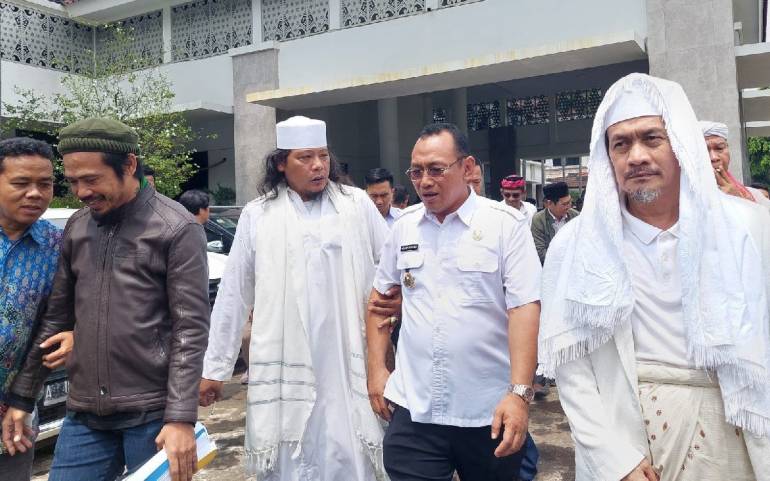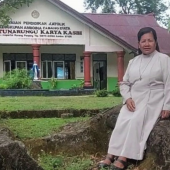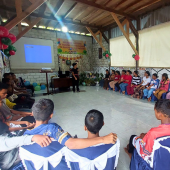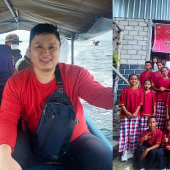Indonesia: Mayor, Deputy Mayor of Cilegon sign a petition opposing church construction

Cilegon Mayor Helldy Agustian and Deputy Mayor Sanuji Pentamarta went viral when their video of the signing of the refusal of the church establishment was widely shared in the community.
The incident occurred on September 7, when a mob calling themselves the Committee of Cilegon Local Culture Rescue came to the Cilegon House of Representative building to express their aspirations regarding the denunciation of the plan to build a Maranatha church in Cikuasa, Gerem, Cilegon City, Banten Province, about 87 km west of Jakarta.
The mass read out a statement of church establishment refusal, which was attended by the chairman and vice chairman of the local House of Representatives. The crowd then spread a white cloth to signify the rejection.
Following this, they went to the office of the Mayor of Cilegon and were received by the Mayor and Deputy Mayor. The crowd then urged the mayor and deputy mayor to join in signing the white cloth as a form of refusal.
"Regarding the signing that happened on September 7, 2022, it is necessary to convey that this is to fulfill the wishes of the people of Cilegon, which consists of Muslim clerics, community leaders, youth leaders, and community organizations," Agustian said in a written statement on September 8.
They then talked about the idea of building a church. He said the Cilegon City government had never received an application for the establishment of a house of worship (church).
"The Cilegon City Government has never received an application for the construction of a house of worship," he said.
Agustian said that the church building committee had visited the mayor's office to convey the process of building a church that had not been completed.
"The requirements have not been met to build a church," said Agustian, "which include validation of community support around the church location, recommendations from the Cilegon Ministry of Religion, and recommendations from the Religious Harmony Forum (FKUB)," he further explained.
Meanwhile, the Chairman of the Committee of Cilegon Local Culture Rescue, Hundusi Hambali KiIshak, said that his party still rejects the establishment of churches in the Cilegon area.
"Our history is the basis for declining the establishment of a church in Cilegon," said Ishak.
He added that the denial was conveyed directly to the council and the mayor. "The point is one word, refuse. We residents of Cilegon reject the construction of the church," he continued.
H Nawawi Syahid, a Cilegon resident, added that in Cilegon there was a mutual agreement in 1975, stating that there should be no construction of any worship facilities except for the mosque.
Cilegon is a city in Banten Province, Indonesia. Cilegon is on the northwest tip of Java Island, on the edge of the Sunda Strait. Cilegon City is known as an industrial city. Another name for Cilegon City is Steel City, considering that this city is the largest steel producer in Southeast Asia.
In 2019, there were 382 mosques and 287 muholla (smaller than the mosques) in Cilegon without any churches, temples, or monasteries, although there were 6,740 Christians, 1,743 Catholics, 215 Hindus, 215 Buddhists, and 7 Confucians. The construction of another house of worship was rejected by residents, so the minority was forced to carry out their religious practices in a nearby city.
Indonesia has a population of about 270 million people and is home to the world's largest Muslim community. There are 24 million Christians in the country, seven million of whom are Catholics.
The construction of houses of worship for minorities is still a struggle that will never end. - Emiliana Saptaningsih
Radio Veritas Asia (RVA), a media platform of the Catholic Church, aims to share Christ. RVA started in 1969 as a continental Catholic radio station to serve Asian countries in their respective local language, thus earning the tag “the Voice of Asian Christianity.” Responding to the emerging context, RVA embraced media platforms to connect with the global Asian audience via its 21 language websites and various social media platforms.














